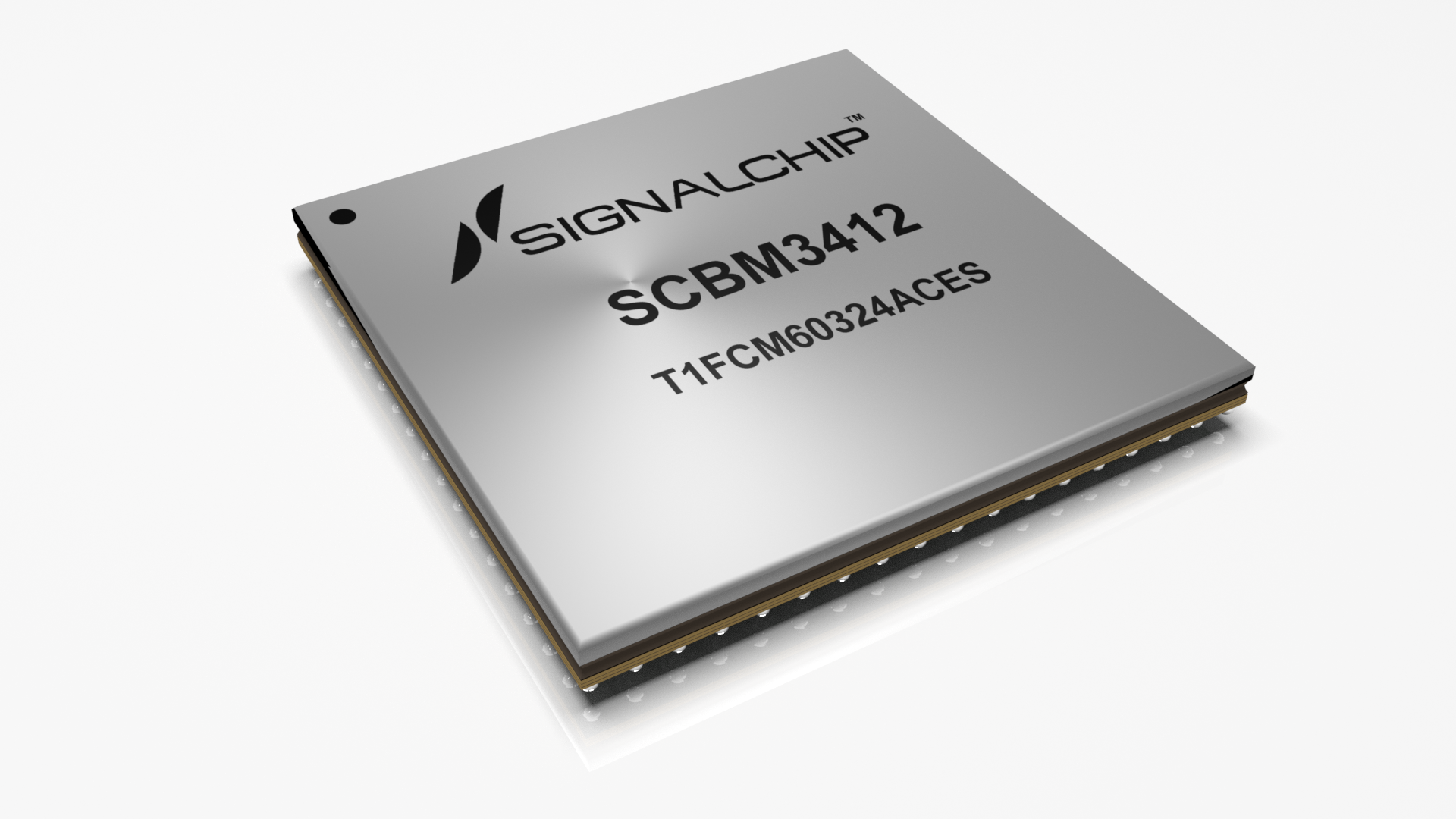Signalchip designs India’s first indigenously designed chip
Article By : Sufia Tippu

Bengaluru-based fab-less semiconductor start-up Signalchip, after eight years of relentless R&D work and a never-say-die attitude, has unveiled India’s first semiconductor chip for 4G/LTE and 5G NR (New Radio) modems.
Co-founded by Himamshu Khasnis and Rajesh Mundhada, Signalchip has designed what is said to be India’s first LTE chip with the 4G/LTE modem, LTE baseband modem, LTE transceiver and 5G transceiver under the Agumbe chipset family, all of which will support all LTE/5G-NR bands up to 6GHz. These chips put India into an elite group of countries that own this widely used technology.
At the recent launch of the event, Signalchip unveiled four chips:
- SCBM3412: a single chip 4G/LTE modem including the baseband and transceiver sections in a single device
- SCBM3404: a single chip 4X4 LTE baseband modem
- SCRF3402: a 2X2 transceiver for LTE
- SCRF4502: a 2X2 transceiver for 5G NR standards

(Source: Signalchip)
These chips also support positioning using India’s own satellite navigation system, NAVIC. Incidentally, the Agumbe series builds up on SCRF1401 – India’s first RF transceiver chip for high performance wireless standards like 3G/4G and Wi-Fi, created by Signalchip in 2015.
The combined multi-standard system-on-chip (SoC) can serve as a base station chipset for a wide range of form factors from low-cost indoor small cells to high performance base stations. These are optimally designed to support evolving network architectures like Open RAN/CRAN with flexible interface configurations.
Indian Telecom Secretary, Aruna Sundararajan while congratulating the 40-member strong Signalchip team for designing India's first indigenous semiconductor chips for 4G/LTE and 5G NR said, “This is a proud moment for India's digital communications industry. India aspires to take a leadership role in developing inclusive 5G technologies for economic self-sufficiency and strategic needs of the country. These chips are a significant step in this direction as they have the potential to cater to the growing digital connectivity needs of the next 5 billion users, by enabling high-performance mobile networks at lower cost.”
Signalchip founder and CEO, Himamshu Khasnis pointed out that currently in India, all devices and infrastructure, whether imported or domestically manufactured, use imported silicon chips. “Silicon chip design is a very challenging activity requiring high-cost R&D, deep know-how and mastery of multiple complex domains. Hence, this technology is not available in most countries. Given that wireless communication is central to almost all economic, strategic and domestic activities happening today, the ability to indigenously design and develop silicon chips is vital for the security and prosperity of our country”.
“Semiconductor is at the heart of any technology. Indian companies have no ownership at the silicon core level. Building competencies in the semiconductor are key to India’s technology roadmap,” he added.
Stanford University professor AJ Paulraj who is also heading the high-level 5G Forum also recently said that only indigenous technology could ward off security threats, and network gear from Nokia and Ericsson could be equally unsafe.
Having mentored and funded Signalchip, Zoho Founder and CEO, Sridhar Vembu said “India has always had the talent required to build any technology. We just need to be patient and have enough capital to put it all together. It's a long-term commitment. Through smart planning and relentless efforts, Signalchip has acquired the capability required to create any complex and globally competitive silicon chip, indigenously from India. I truly appreciate the patience and diligence the Signalchip team has shown to build this chip. Only long-term R&D can make Indian companies globally competitive”.
The company has 240 large and small IP modules and it has filed 24 patents but, however, feels that commercialisation of new products would be a challenging aspect.
— Sufia Tippu is a freelance tech journalist based in India contributing to EE Times India.